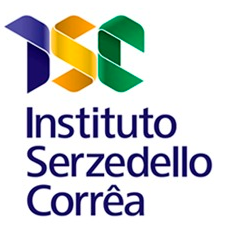Tribunal de Contas da União
TCU Obtains the Gender Equality in Public Institutions Seal
On March 12, the Brazilian Federal Court of Accounts (TCU) obtained the Gender Equality in Public Institutions Seal from the United Nations Development Programme (UNDP). The President of TCU and Chair of INTOSAI, Minister Bruno Dantas signed the letter of adherence to the certification process in a meeting with the UNDP Brazil Representative, Claudio Providas.
With the initiative, the TCU will increase efforts related to gender equality, according to UNDP's standards and suggestions. "The implementation of the strategy will be fundamental to improve the way we have been working and to create structures that will provide sustainability to the irreversible process of seeking gender equality that we are pursuing today in the public sector. Investing in this matter will help us fulfill our institutional mission and implement the actions envisioned in our strategic planning," said the President.
The UNDP Representative, Claudio Providas, emphasized the importance of the action for both national and international contexts. "It is not only a seal, but also the beginning of a certification process that provides credibility and legitimacy fostering tangible outcomes. The TCU’s case is especially remarkable because it can have a positive impact both on sub-national courts and on an international level, through INTOSAI. These two unique dimensions are both interesting and particular to TCU," he said. The International Organization of Supreme Audit Institutions (INTOSAI) is currently chaired by SAI Brazil (TCU).
Minister Bruno Dantas emphasized the Court's commitment to completing all stages and following recommendations set forth by the UNDP, with the aim of advancing and inspiring other institutions.
"I am confident that acquiring the seal will significantly enhance not only the advancement of the gender and diversity agenda within the TCU but also serve as inspiration for the Brazilian public administration and other supreme audit institutions worldwide," he remarked.
Through UNDP, the Assistant Resident Representative, Maristela Baioni, the gender and race equality officer, Ismália Afonso, and the manager of strengthening and internationalization for the promotion of sustainable human development, Lívia Nogueira, attended the meeting.
The deputy secretary general for Administration, Fabiana Ruas, the Equality, Diversity, and Inclusion Committee coordinator, Marcela Timóteo, the deputy secretary for People Management, Claudia Mancebo, the Sustainable Development External Control secretary, Vanessa Lopes, the International Relations secretary, Simone Bambini, and International Relations analyst, Brenda Rodrigues were also present.
Understand the process of achieving the UNDP seal
Launched in August 2021, the seal represents the support and recognition of public sector organizations' efforts to achieve equality between men and women. It is being implemented in 23 countries, by more than 100 public institutions.
The initiative is a program that establishes clear standards and norms to guide the state in gender-related matters. The standards and indicators used to rank institutions were defined based on the international and national commitments signed by the countries.
The methodology emphasizes public organizations' efforts to improve in contributing to gender equality and is divided into five stages: engagement, self-assessment, preparation and implementation of the action plan, assessment, and certification.
In total, 40 indicators are used to assess institutions comprehensively, in areas that go from work environments and gender equality abilities to partnerships, results, and impacts on public policies. The indicators were designed based on commitments to gender equality, such as the World Conference on Women (Beijing 1995) and the Convention on the Elimination of All Forms of Discrimination Against Women (CEDAW).
The work is done in five interconnected performance areas, which are:
- Planning and management for gender equality
- Structure and abilities of gender equality
- Workplaces that enable gender equality
- Participation, partnerships, and accountability
- Results and impact on public policies
Technical cooperation agreement between the TCU and the UNDP
Obtaining the seal is part of the broader strategy of efforts to advance the strengthening and internationalization of the TCU to promote sustainable human development. The Court, leading the International Organization of Supreme Audit Institutions (INTOSAI), signed the technical cooperation agreement with the UNDP.
The goal is to promote joint action between the institutions in matters of climate, gender equality, digital transformation, and financing for development. The agreement aims to enable the cooperation and collaboration between the INTOSAI and the UNDP in areas of common interest to both organizations. "The project propels the Court's performance and contributes to the global knowledge exchange and good practices, in line with the commitment made by the TCU when taking over the presidency of INTOSAI", concluded the president.
The effort is also relevant regionally as it represents progress in the implementation of the Policy on Gender Equality and Non-Discrimination of the Organization of Latin American and Caribbean Supreme Audit Institutions (OLACEFS).
The initiative is aligned with the United Nations (UN) 2030 Agenda, which has gender equality as one of its 17 Sustainable Development Goals (SDGs). SDG 5 is to "Achieve gender equality and empower all women and girls".
Gender equality promotion in the TCU
In recent years, TCU has invested in promoting gender equality, both in the administrative context and in the carrying out of audits. In March 2023, Regulation-TCU 67 was instituted, which regulates the filling of strategic-tactical leadership positions at the Court. The aim is to maintain gender proportionality. This year, the strategy was expanded with the implementation of a panel that allows for real-time monitoring of what was defined in the regulation.
The Court also instituted the Policy for the Prevention and Fight against Moral and Sexual Harassment and All Forms of Violence and Discrimination. The document establishes guidelines and measures to be adopted to promote a workplace that is safe, decent, healthy, sustainable, and free from inappropriate behaviors. Another important action was the creation of the Equity, Diversity, and Inclusion Technical Committee as a reference body on the subject.
Audits focused on SDG 5 stand out when it comes to oversight. The Court Decision No. 2766/2019-Full Court evaluated the federal government's preparation to implement actions in Brazil. In 2022, the TCU audited public policies to prevent and combat violence against women.



